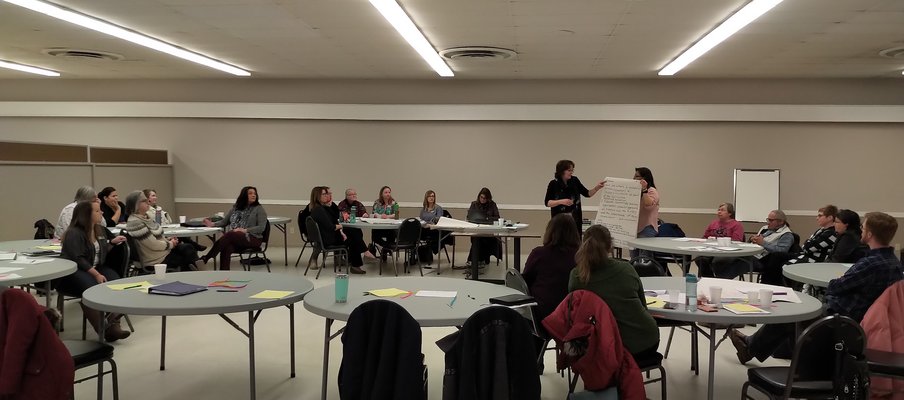
Mapping a Path to Reconciliation
Community groups began working together to address the Truth and Reconciliation Commission’s Calls to Action and identify ways to support positive change in Yorkton. Their work over the past year has created new relationships between Indigenous and non-Indigenous leaders, as well as a plan to move forward.
Reconciliation Yorkton, organized by Big Brothers Big Sisters Yorkton and Area (BBBS) with guidance from the Office of the Treaty Commissioner (OTC), received funding through SaskCulture’s Multicultural Initiatives Fund, to support the work of the committee to promote intercultural connections and promote Reconciliation in Yorkton and the surrounding region.
“This project was about building a diverse circle of leadership in which cultural skills and knowledge can be developed, strengthened and shared in the community of Yorkton and aimed to create a circle of bridge builders through shared learning about our cultures, our history, and the Truth and Reconciliation Calls to Action,” says Irma Van De Bon-Nicol, Executive Director, BBBS Yorkton. “We recognized the need to bring together Indigenous and non-Indigenous leaders in Yorkton and area, to explore ways to build trust, relationships, mutual learning and discuss joint activities for change.”
The project helped First Nations, Métis, newcomer and non- Indigenous champions from business, government, and community come together in a safe space for dialogue and shared objectives.
"More than 80 people attended the first gathering, proving that there was an interest in learning more and planning steps the community could take on the path to Reconciliation,” explains Van De Bon-Nicol. It provided a seed for the idea to grow. The assembled group identified seven shared goals that could be worked on to achieve a goal of setting the community on the path to Reconciliation. “By taking part in an OTC Mapping Exercise, the group
Yorkton is one of eight communities that is working with the OTC to provide ‘champions’ to help provide an agenda and vision for Truth and Reconciliation in the Treaty territories of Saskatchewan. To date, over 180 organizations across Saskatchewan have contributed to building this vision. In response to this, OTC has conducted follow up with partners to develop tools for communities and organizations to map out, measure, and learn from their Truth and Reconciliation actions.
“There continues to be a hunger for shared learning and improvement on the status quo. This is not a one-off project or event and needs to be sustainable to ensure long-term authentic supportive relationships are developed and sustained," says Van De Bon-Nicol. “Reconciliation is an ongoing process that occurs in the context of evolving relationships. We continue to strive to share and learn from each other’s experiences, and to evaluate whether these activities are having an impact furthering Reconciliation.”

